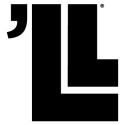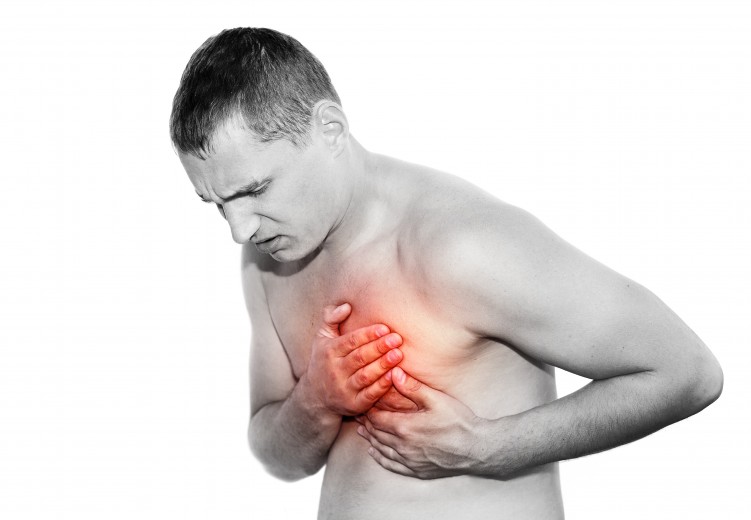As part of Men’s Health Week 2015 one man shares his story of how heart disease forever changed his life. Forcing him to fill his fathers shoes and inspiring him to lead a healthier life for the benefit of his own son.
It was a Wednesday, my father, mother and little brother were trying to figure out what to have for lunch. I was 180 miles away in college and attending my last set of classes before taking finals and finishing my first semester. When I returned from classes for the day, there were a bunch of messages on my answering machine. I started playing them and went about absent-mindedly unpacking my book bag and getting set up to study. The first message was from my mother, asking me to call her as soon as I got in. She sounded insistent, but I kept organizing things in my room and made a mental note to call her later. The next message — my mom again. She sounded even more insistent, so I called her back. When I called an unfamiliar voice answered the phone. “Who’s this? What’s going on?” I asked. The voice identified itself as a police officer and asked me to hold. My body tensed and I froze. Why was a cop answering my home phone? When my mom came on the line she told me that I had to come home because my father had suffered a heart attack. “Is he OK?” I asked. “You have to come home, Jeff,” she said. I started to explain about my finals. In my mind a heart attack was bad, but survivable if he was in stable condition. I thought if he was OK I could just leave on Friday. “Jeff, please,” my mom pleaded. “You have to come home now.” Her voice broke. What she had been desperately trying to hide came out: “He had a heart attack on the sofa and he died!”
Time stopped
My mind went blank and I tried to pretend that this wasn’t happening. “What? Dead? What do you mean…” I stammered, trying to reverse words I had just heard. I dropped the phone and went limp, falling to the floor. I could hear my mother screaming into the phone while I lay in the fetal position screaming. Money ran through my mind first. My father was the sole provider for our family. My mom was handicapped and my younger brother was only 10. I knew that I was going to have to step in, without even finishing college, to pick up the slack.
My father was 48 when he passed from a myocardial infarction (heart attack) brought on by arteriosclerosis (hardening of the arteries). At 5’4″ he was a short, stout man whose beer belly had grown larger in his past few years. It didn’t stop him from being the gregarious person. He’d always eaten what he wanted — his love of fried foods was immense. Though he was a former boxer, I hadn’t seen him engage in any fitness-related activities in years and he had a heavy smoking habit. To top it off, he was averse to seeing a doctor for anything. It’s why his heart disease went undiagnosed. In fact, there were no indications that anything was wrong with him, except that he was getting older.
The Aftermath
My father’s death left a huge gap. I was just 18 when he passed and in the middle of my freshman year. Though I returned to school, I struggled to remain focused, suffering bouts of depression, frustration and barely repressed anger. I struggled to keep my emotions in check. It was hard to bottle up all that sadness and anger. I came home after freshman year and tried to stay positive by throwing myself into work and spending time with my younger brother. But my anger seeped out. One day, I snapped at my mother over something trivial. Instead of scolding or smacking me she turned to me and said, “Either take a break, go on vacation, get some rest or do something. But you need to figure this out and stop lashing out at people.” I was immediately embarrassed and her comments stung more than her slap could have. The result, I proactively sought grief counseling to better deal with my emotions. While it helped a bit, I didn’t feel I could readily share my feelings with anyone. One day I woke up and my heart was beating 10 times faster than normal. I thought I was having a heart attack. The doctors I saw examined me and chalked it up to stress and fatigue. I don’t think that they understood that I was a grief-stricken college student, but they wouldn’t have been able to prescribe anything for that.
Following my dad’s death I consciously abstained from over indulging in greasy, fatty foods. I hated doctors but would go see one if something were seriously affecting me. I wanted to ensure an undiagnosed disease wouldn’t sneak up on me. In hindsight, I wish that my father had seen a doctor more consistently and not when he got the flu or when he was too sick to work. I wish that I had tried to improve his eating habits. I wish that I had done anything to make a difference. Our birthdays were a day apart, so I was never able to fully enjoy them after he passed without thinking that we could no longer have joint celebrations. Mostly, I wish we’d all had more time together as a family.
Today
Now I am a father myself. My son was born one week shy of me turning 38. My immediate and long-term thoughts/goals are to be around past my son’s 10th birthday. So I’ve put my money where my mouth is. I’ve changed my diet to bring my weight and cholesterol down. I make a concerted effort to get medical check-ups and seek medical attention when I get sick. I don’t bottle up my emotions nearly as much and I find ways to relieve stress. Smoking and booze — only for celebrations. My goal is to be here past 48 and to enjoy my son’s life so he won’t have to worry about “filling in” for me. I want him to enjoy his life and like any parent, I want him to be happy. Part of that involves me being around for a long time, so I’m working on making that a reality.

